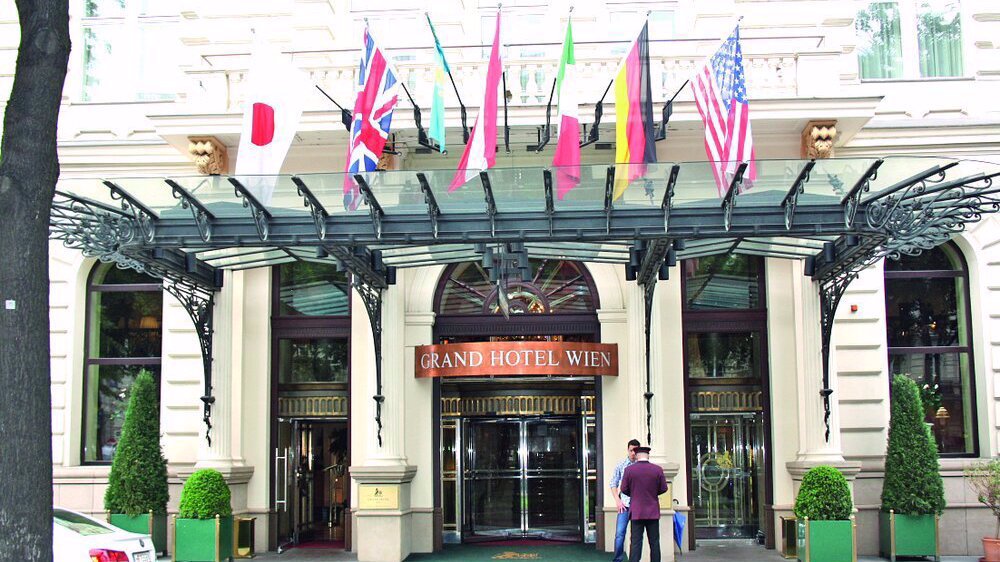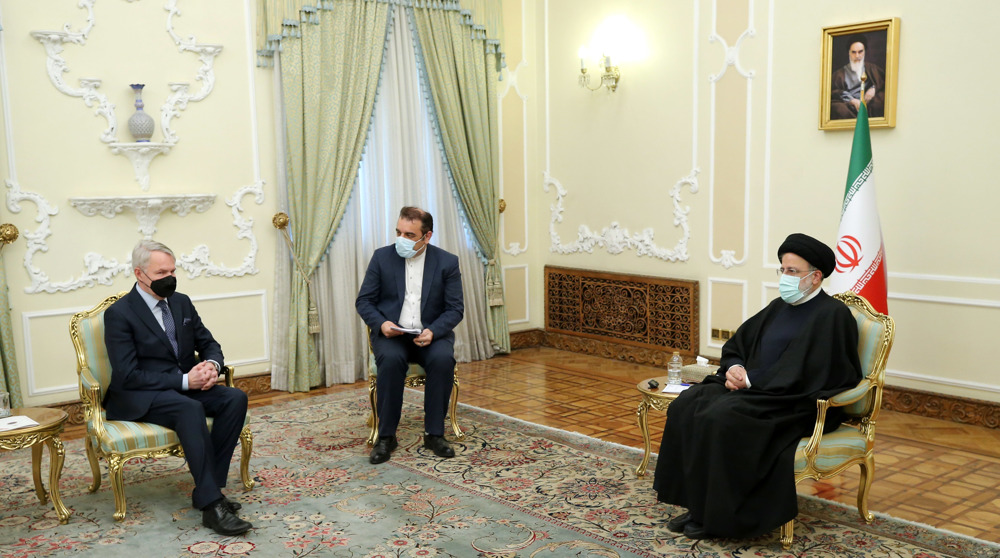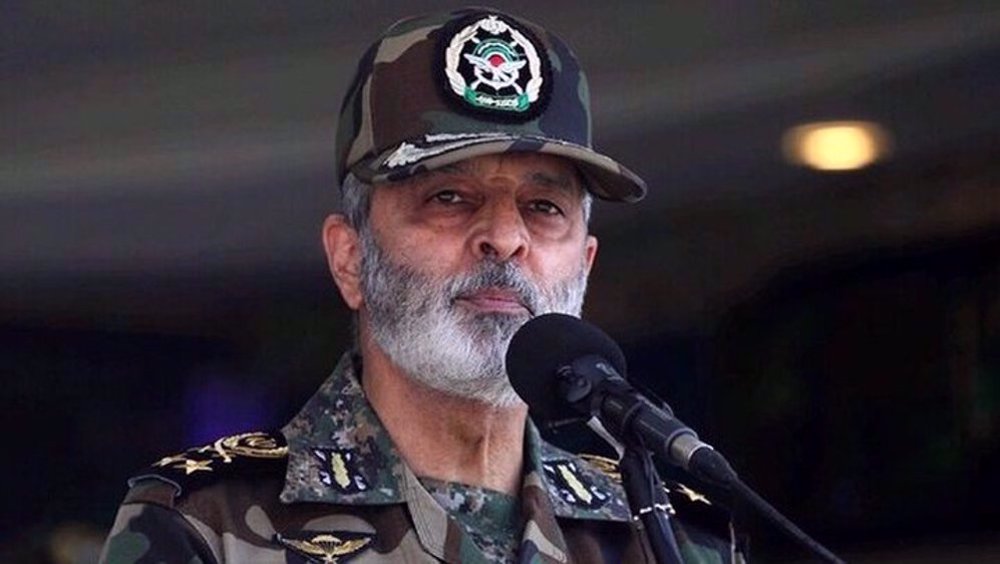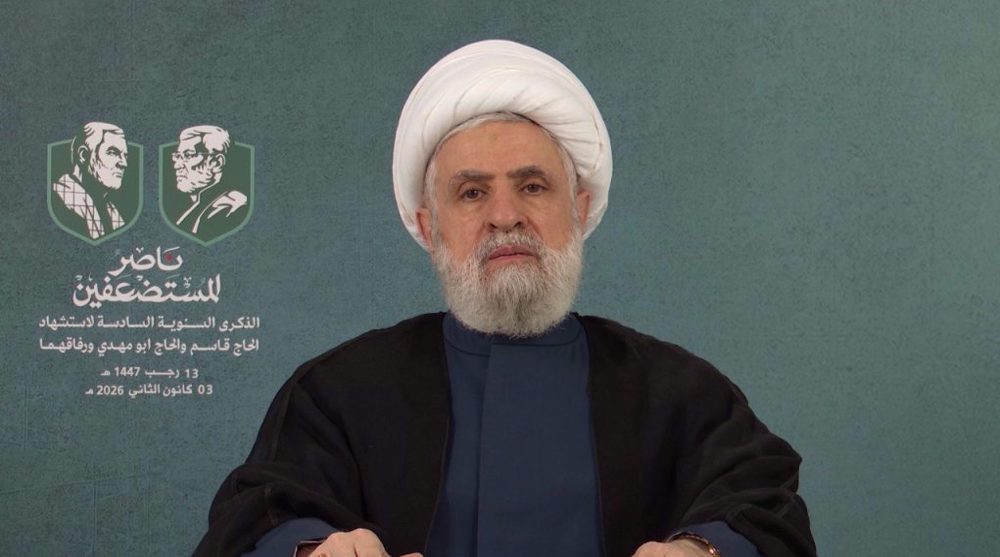Iran urges 'serious' decision by West, 'meaningful' US departure from failed policies
Iranian Foreign Minister Hossein Amir-Abdollahian says the Western signatories of the 2015 Iran nuclear deal, officially known as the Joint Comprehensive Plan of Action (JCPOA), must make an effective and serious decision to remove the entire anti-Iran sanctions that violate the landmark agreement.
Amir-Abdollahian made the remark in a phone interview with his Chinese counterpart, Wang Yi, early on Tuesday as the two diplomats discussed bilateral relations between Tehran and Beijing as well as the process of talks in the Austrian capital of Vienna on the removal of unilateral sanctions against the Islamic Republic.
Expressing appreciation for the Chinese government's supportive position in the Vienna talks on lifting sanctions, the Iranian foreign minister outlined the country’s policies with regard to the deal and stressed the need for realism on the part of the West.
“The Western side must make a serious and effective decision with regard to removing sanctions and demonstrate its meaningful departure from the failed policies of the previous US administration,” Amir-Abdollahian told Wang in the phone conversation. “This will be possible by removing all sanctions contravening the JCPOA and adopting serious measures with regard to providing guarantees [that the US will not abandon the deal again].”
The Chinese foreign minister, for his part, said Washington’s 2018 withdrawal from the deal has damaged Iran and violated its legitimate rights.
Former US president Donald Trump unilaterally left the JCPOA in May 2018 and re-imposed the anti-Iran sanctions that the deal had lifted. He also placed additional sanctions on Iran under other pretexts not related to the nuclear case as part of his “maximum pressure” campaign.
In May 2019, following a year of strategic patience, Iran decided to let go of some of the restrictions on its nuclear energy program, resorting to its legal rights under the JCPOA, which grants a party the right to suspend its contractual commitments in case of a non-performance by the other side.
The administration of US President Joe Biden says it is willing to compensate for Trump’s mistake and rejoin the deal, but it has retained the sanctions as leverage.
Envoys from Iran and the P4+1 group of countries — Britain, France, Russia, and China plus Germany — have been holding negotiations in the Austrian capital for 10 months in a bid to resurrect the JCPOA.
The eighth round of the talks will resume on Tuesday after a brief pause during which the negotiators returned to their capitals for consultations.
Moscow understands Iran's demands in Vienna talks
Mikhail Ulyanov, Russia's ambassador to international organizations in Vienna, pointed in an interview with the Russian Kommersant daily newspaper on Monday to the process of talks in the Austrian capital on the removal of anti-Iran sanctions and said Moscow backs Tehran’s demands.
“By and large, we are sympathetic towards Iran's demands,” Ulyanov said. “In this case, Iran is the disadvantaged party. Iran did not withdraw from the JCPOA and did not deviate from its obligations on its own accord, but its actions were in response to the policy of maximum pressure from the United States. So, I reiterate that we have a very high understanding of Iran's demands.”
Ulyanov touched on the ongoing talks in Vienna, stating that several fundamental issues remain in the negotiations that need to be resolved.
Asked about the amount of time needed for the final agreement, the Russian diplomat said, “Experience in these negotiations has shown that it is better to refrain from such assessments or from giving specific dates. We still need to resolve certain issues, some of which are relatively fundamental."
VIDEO | Australians protest over US action in Venezuela
Cuba declares national mourning for 32 citizens killed in US raids on Venezuela
Iran: US must release kidnapped Venezuelan president
After US aggression against Venezuela, Mexico could be next: Report
Qalibaf: Protesters must be heard but foreign-linked agitators will be dealt with
VIDEO | German government refuses to condemn US aggression against Venezuela
Venezuela’s acting president calls for peaceful coexistence, dialogue with US
Denmark, Greenland leaders urge Trump to halt takeover threats











 This makes it easy to access the Press TV website
This makes it easy to access the Press TV website